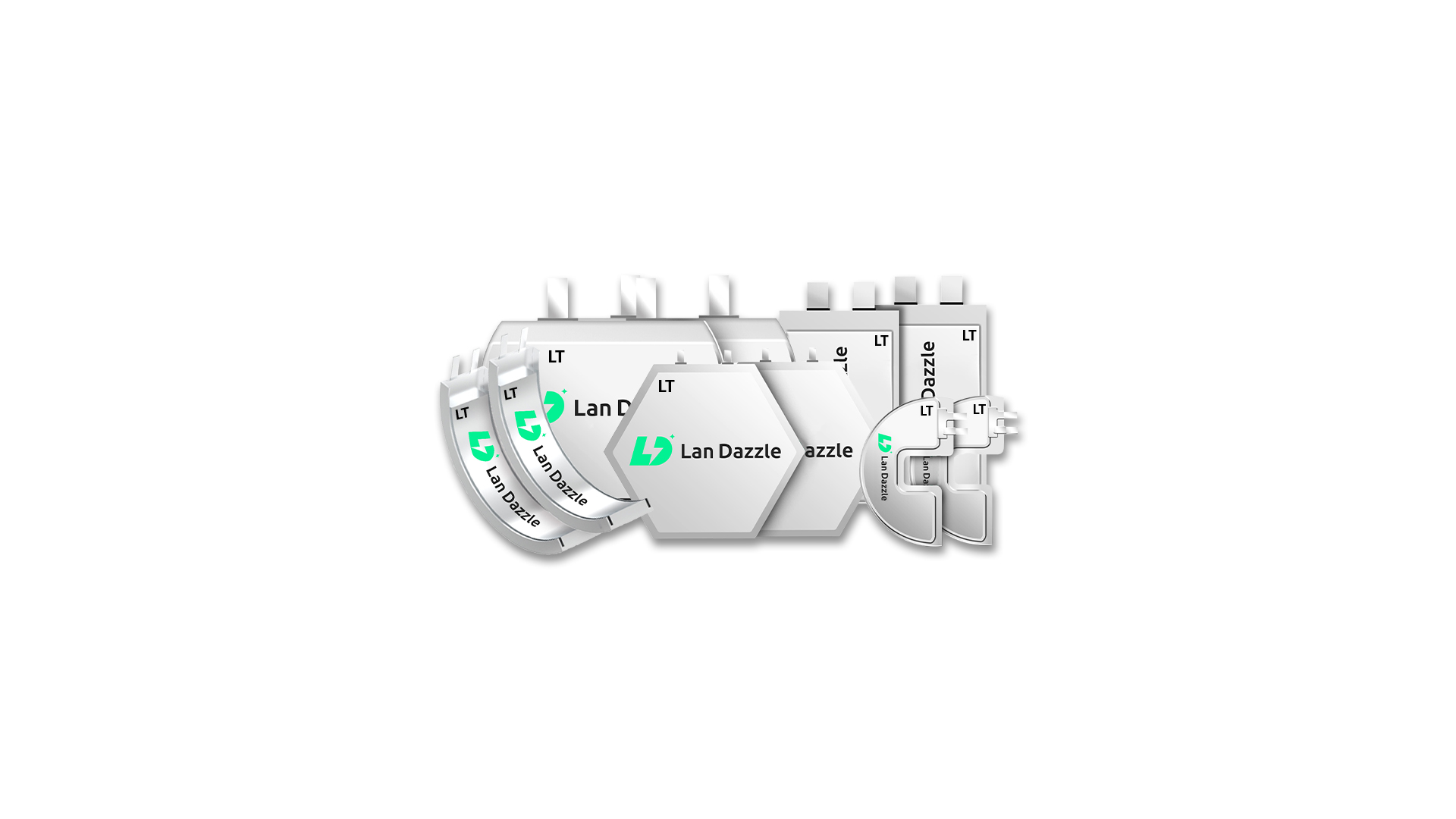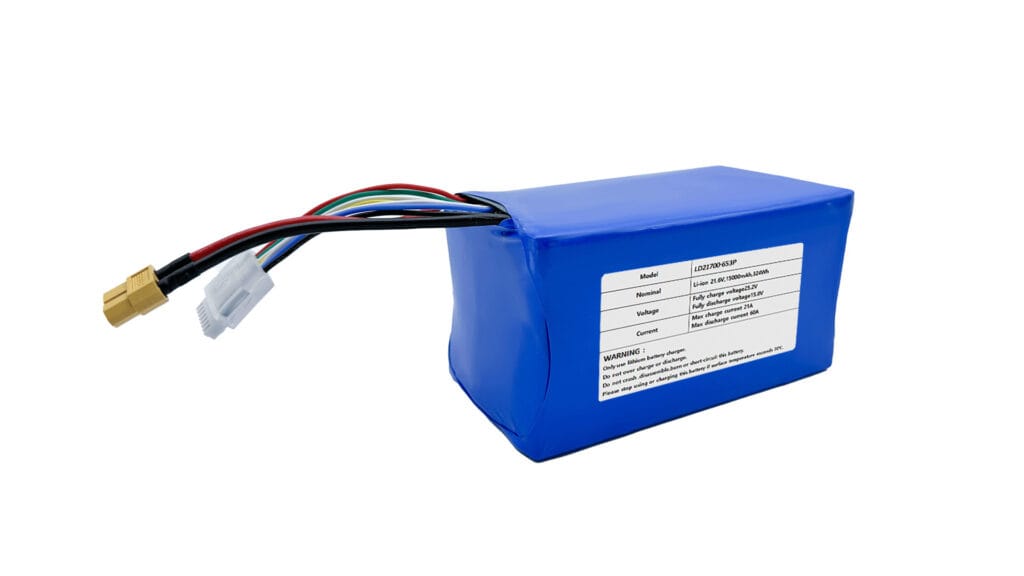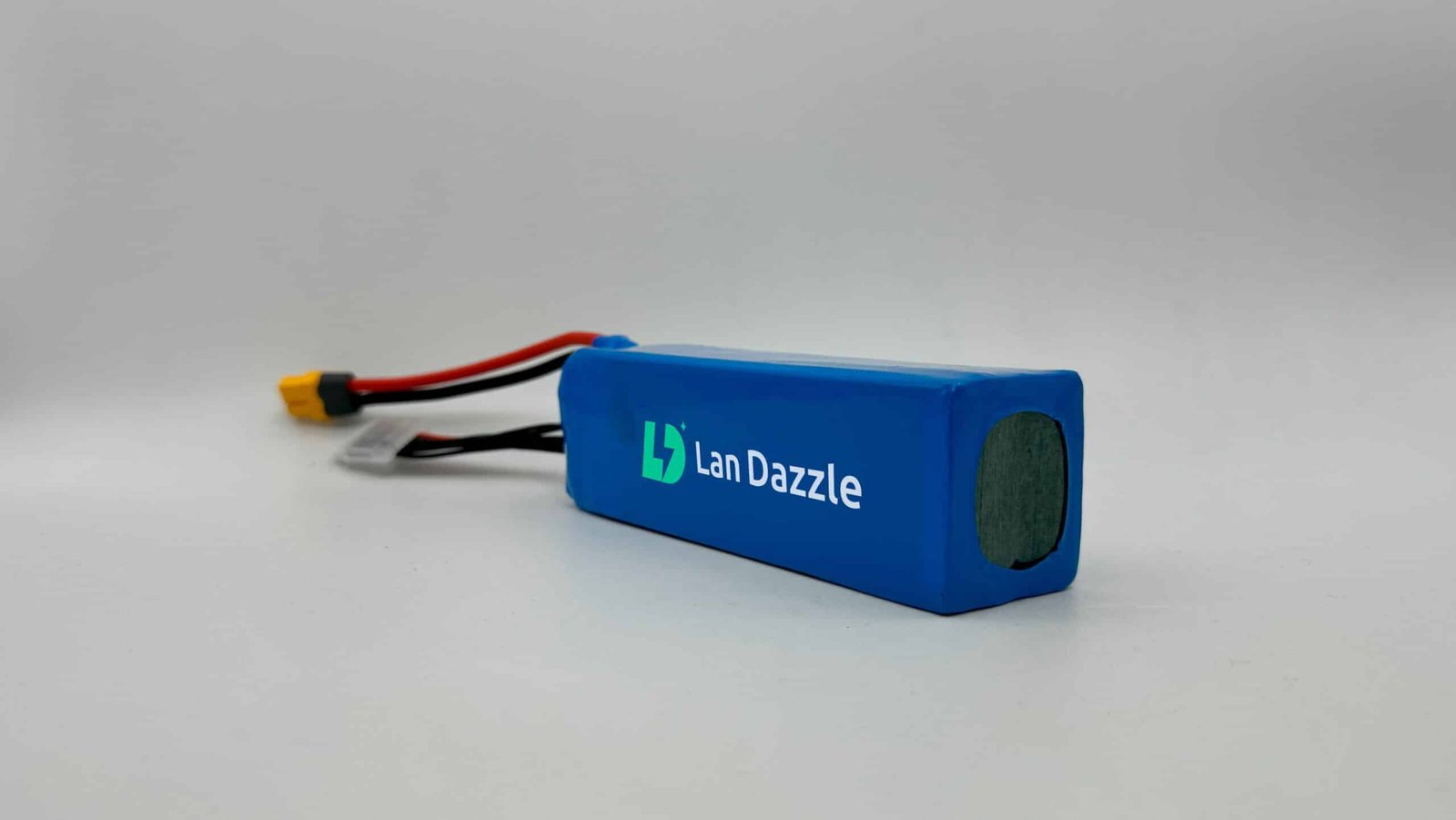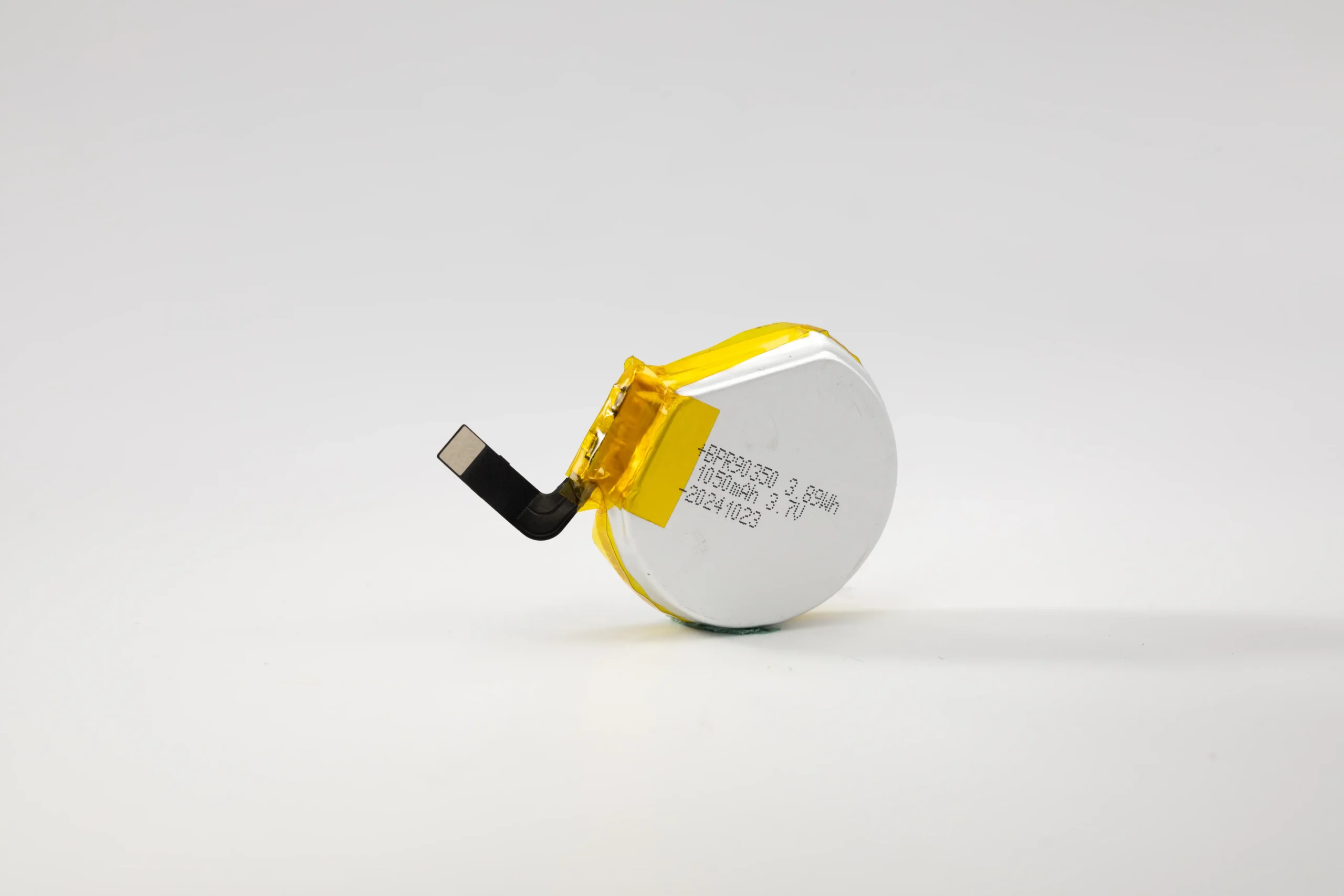Introduction
The robotics industry is undergoing a seismic shift. From AI-driven drones mapping remote terrains to collaborative arms assembling precision components, modern robots demand ever-greater power density, reliability, and form-factor flexibility. Off-the-shelf battery packs often force engineers into unwelcome trade-offs: sacrificing runtime for size, or robustness for weight.
Enter custom LiPo battery solutions. By tailoring cell chemistry, pouch-cell geometry, and integrated Battery Management Systems (BMS) to the unique requirements of each robotic application, Lan Dazzle is unlocking new levels of performance and safety. In this article, we’ll explore why custom LiPo matter, delve into the technical considerations that underpin them, highlight use cases across educational, service, and medical robots.
Whether you’re an R&D engineer looking to maximize flight time on an AI research drone or a systems integrator specifying power for a hospital-assist robot, read on to discover how bespoke LiPo solutions can drive your next wave of robotic innovation.
Why Lipo Battery Excels in Robotics
Lithium polymer (LiPo) batteries have become a cornerstone of modern portable electronics, and their inherent advantages make them exceptionally well-suited for a wide spectrum of robotic applications. Compared to older battery technologies like Nickel-Metal Hydride (NiMH) or Lead-acid, LiPo batteries boast a significantly higher energy density, meaning they can store more power for their weight and size. This is crucial for robots where minimizing weight and maximizing operational time are often paramount.
Furthermore, LiPo batteries offer remarkable form factor flexibility. Unlike the rigid cylindrical or prismatic shapes of some other batteries, LiPo cells can be manufactured in various shapes and sizes, allowing engineers to design battery packs that seamlessly integrate into the often-compact and uniquely shaped bodies of robots. This design freedom is particularly valuable in consumer and medical robotics, where aesthetics and ergonomics play a significant role. The lightweight nature of LiPo technology also contributes to improved robot agility and efficiency, enabling longer operating times and more complex movements.
Why Custom LiPo Batteries Matter
Form-Factor Flexibility
Standard cylindrical cells dictate fixed dimensions, often leaving unused volume or forcing bulky enclosures. Custom pouch cells, by contrast, bend, stack, and conform to any available space—slim modules for service robots’ cavities, curved packs for wearable assistants, or flat arrays along a drone’s wing. The result? Optimized space utilization, reduced chassis weight, and sleeker, more agile robots.
Energy & Power Density Gains
Off-the-shelf LiPo batteries typically deliver 100–200 Wh/kg, with power densities up to 2,500 W/kg for high-C-rate cells. Through cell-level customization—tweaking cathode/anode ratios and electrode thickness—custom packs can boost usable energy density by 10–20 %, directly translating to longer runtimes without added bulk. For example, an AI drone powered by a tailored pack may achieve 25 % more flight time, enabling extended data-collection missions.
Thermal & Safety Advantages
High discharge rates generate hotspots, risking thermal runaway. Custom solutions integrate phase-change materials, copper heat spreaders, and distributed temperature sensors to maintain uniform cell temperatures. Combined with a smart BMS featuring real-time thermal monitoring and dynamic cutoff thresholds, these packs can achieve 1,000–1,500 full cycles with minimal capacity fade—critical for medical and industrial applications where reliability is non-negotiable.
Driving Innovation Across Diverse Robotic Applications
The impact of custom lipo battery solutions is evident across various segments of the robotics industry:
- Educational Robots: Custom batteries enable longer class times and more engaging interactive sessions by providing reliable and appropriately sized power for movement, sensors, and processing. Robots designed for teaching STEM concepts can operate for extended periods, maximizing their educational value.
- AI Robots: These robots, often requiring significant computational power for machine learning and complex tasks, benefit from custom batteries that can deliver stable and sustained power, ensuring consistent performance of their AI algorithms. Service robots with AI capabilities, like those used for customer service or security, require long-lasting power for continuous operation.
- Service Robots: Whether navigating hospitals, warehouses, or homes, service robots demand reliable and often high-capacity power. Custom LiPo solutions allow for optimized run times and form factors that enable seamless integration into the robot’s design, enhancing their utility and efficiency.
- Consumer Robots: From robotic vacuum cleaners to interactive companions, consumer robots prioritize ease of use and aesthetics. Custom LiPo batteries contribute to sleeker designs, lighter weights, and longer operating times, making them more appealing and practical for everyday use.
- Medical Robots: In critical medical applications, reliability and precision are paramount. Custom LiPo batteries provide the stable and dependable power required for surgical robots, diagnostic tools, and patient care robots, often with stringent safety features integrated through tailored BMS.
Future of Custom Lipo Power in Robotics
The future of robotics is inextricably linked to advancements in battery technology. We can anticipate further developments in custom lipo solutions, including higher energy densities, faster charging capabilities, and potentially the integration of solid-state battery technology, which promises enhanced safety and energy density. These advancements will pave the way for even more sophisticated and capable robots across all sectors. Imagine educational robots with even longer interactive times, AI robots capable of more complex processing on a single charge, and medical robots with even greater precision and operational endurance.
Conclusion
Custom lipo battery solutions are more than just power sources; they are enablers of robotic innovation. By offering tailored voltage, capacity, and form factors, these advanced batteries empower engineers to design and build robots that are more efficient, versatile, and seamlessly integrated into a growing number of applications, from education to healthcare. As the field of robotics continues its rapid evolution, the ability to precisely power these intelligent machines with custom-designed energy solutions will remain a critical driver of progress, shaping the next generation of robotic capabilities.
At LanDazzle, we have develop a custom-shaped battery for small robot: LDR90350. The LDR90350 is a high-performance, custom-shaped lithium polymer battery designed for smart robots and other specialized devices. With a capacity of 1050mAh and a nominal voltage of 3.7V, it delivers reliable and long-lasting power.
LDR90350 Battery Specifications:
| Model | Capacity | Nominal Voltage | Full Charge Voltage | Discharge Rate | Thickness | Width | Length |
| LDR90350 | 1050mAh | 3.7V | 4.2V | 1C | 9.0mm | 35.5mm | 35.0mm |
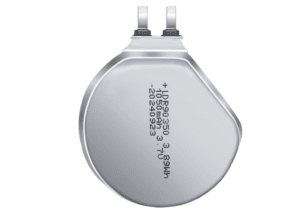
Whether you’re pioneering educational platforms, pushing AI-driven drone research, or delivering critical medical-assist robots, Lan Dazzle offers the expertise and factory-direct service to power your breakthroughs. Contact Lan Dazzle today at info@landazzle.com to discuss your project requirements and discover how custom LiPo packs can drive your robotic innovation forward.
FAQ
- Why are lipo batteries preferred for many robotic applications?
High energy density, lightweight nature, and flexible form factor allow for optimized performance and design integration. - What does “custom” mean in the context of lipo batteries for robots?
Tailoring the voltage, capacity, size, and shape of the battery pack to meet the specific and unique power requirements of a robot. - How does a custom lipo battery improve a robot’s performance?
It can lead to longer run times, higher power output for demanding tasks, and better physical integration within the robot’s design. - Are custom lipo batteries safe for use in robots?
Yes, especially when integrated with a tailored Battery Management System (BMS) that provides crucial safety features. - What are some examples of robots that benefit from custom lipo batteries?
Educational robots for extended learning, AI-powered service robots needing long operational hours, and compact medical robots requiring specific power profiles.

